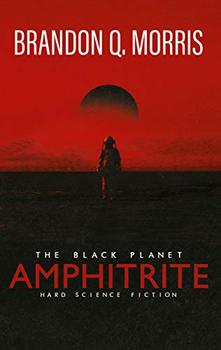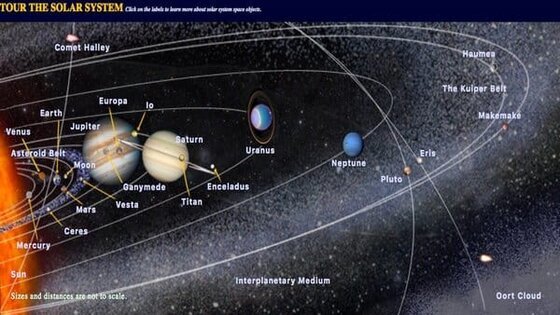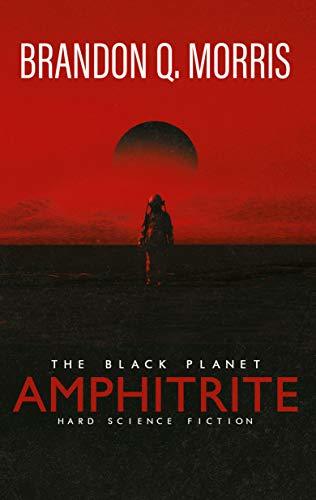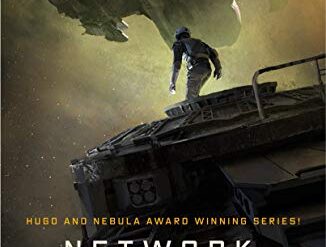
Four humans and a cleaning robot with a mind of its own are on their way in a stolen spaceship to a newly discovered planet beyond the orbit of Neptune. Amphitrite, the title of this book as well as the new planet’s name, is the entertaining story of why they’re on their way and what happens when they get there. This is hard science fiction from the fertile mind of astrophysicist Brandon Q. Morris. So, as unlikely as some of the events and circumstances might appear, there’s logic in them. And reading this novel you might end up learning a few new things about the solar system.
A murder, a hijacking, and a race for freedom
It’s the year 2078. Juri is a miner, German despite his Russian name. He’s part of a small crew exploring the asteroid Hektor. His Bulgarian colleague, Grigori, is obnoxious but his exasperating behavior always seems to stop just this side of truly dangerous. However, when Grigori attempts to rape Denise, the small company’s pretty French chemist, Juri loses it. Carried away with rage, he chokes Grigori to death. Now Juri is certain their by-the-book boss, Chen, will ship him off to prison and possible execution in the Chinese penal system. To avoid that unpleasant fate, he knows he has to get off Hektor and disappear. Along with two of his colleagues, Denise and a Russian woman named Irina, Juri hijacks a visiting spaceship, the Ganymede Explorer.
Amphitrite (Black Planet #1 of 3) Brandon Q. Morris (2020) 344 pages @@@@ (4 out of 5)

On board, they discover they’re not alone. The ship’s captain, an officer of Turkish origin in the European Space Agency named Meltem, has been sleeping in her cabin rather than in the cramped mining settlement. And a small cleaning robot named Oscar turns up, too. Oscar resembles a Roomba with a long extendable arm that ends in digits containing an array of tools. And Oscar can talk. Oh, and you can’t trust Oscar, either. It lies.
A seven-month journey to a newly discovered planet
Together, this motley crew heads off into space. They have no destination except a desire to go where no one will think to look for them. Then a brilliant hacker they contact helps them identify a previously undiscovered planet. She names it Amphitrite. And after an eventful seven-month journey to the farthest reaches of the solar system, they arrive at the new planet. At which point the dangers they encountered along the way fade into insignificance in the face of what the black planet has in store for them.
A phantom planet far, far from the sun
For many years astronomers have speculated that one or more planets lie far beyond the orbit of Neptune in the Kuiper Belt or the Oort Cloud. In Brandon Morris’ imagination, Amphitrite—named for Poseidon’s (Neptune’s) wife—is one such planet. Observers have failed to discover it because of its low albedo (reflectivity). It appears to be uniformly black. And it’s unusual in at least one other major way as well. The eight known planets in the solar system revolve around the sun in orbits like Earth’s through what is known as the plane of the ecliptic. Amphitrite doesn’t. Instead, the orbit of this newly discovered planet runs at a steep angle to the plane and at distances from the outermost planets at least 250 times as great from the sun. But Amphitrite—and Brandon Morris—are full of surprises, as the crew of the Ganymede Explorer discover in this novel.
About the author

Brandon Q. Morris is a physicist and space specialist. I count twenty-three novels on his website, all of them hard science fiction that displays his command of the science involved. In his blog, Morris explores some of the same questions that appear in his fiction. But expect to encounter material that’s a little more technical than the novels.
For further reading
See Good books about space travel, including both nonfiction and fiction.
For more good reading, check out:
- The ultimate guide to the all-time best science fiction novels;
- Great sci-fi novels reviewed: my top 10 (plus 100 runners-up);
- Seven new science fiction authors worth reading; and
- The top 10 dystopian novels reviewed here (plus dozens of others).
And you can always find my most popular reviews, and the most recent ones, plus a guide to this whole site, on the Home Page.



























